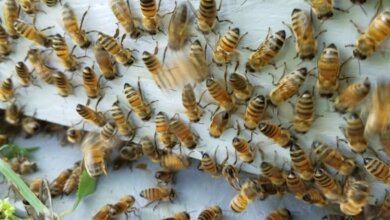Rolex Certified Pre Owned: Full Guide for Beginners

The term Rolex Certified Pre Owned refers to second-hand Rolex watches that have been officially authenticated, serviced, and resold by Rolex-authorized dealers. These timepieces pass through a rigorous verification process conducted by Rolex experts to ensure the watch’s condition, originality, and authenticity meet Rolex’s strict standards.
Unlike standard pre-owned Rolex watches that might be sold by independent retailers or individuals, certified pre-owned (CPO) Rolex watches come with an official Rolex certificate, a two-year international warranty, and the iconic Rolex seal—providing peace of mind and brand-backed credibility for the buyer.
Why Rolex Launched Its Certified Pre Owned Program
Rolex introduced its certified pre-owned program to give buyers confidence in the booming second-hand luxury watch market. The second-hand luxury industry has grown rapidly, but trust is often a challenge due to the rise of counterfeits and unauthenticated sales. Rolex entered this space to:
- Regain control over how its brand is represented in resale markets
- Guarantee authenticity and performance
- Offer consistent pricing and service standards
- Extend trust and transparency to pre-owned buyers
This move also benefits authorized dealers by allowing them to sell verified used watches under Rolex’s umbrella, ensuring consistent resale value and a secure customer experience.
Key Features of Rolex Certified Pre Owned Watches
1. Authenticity Guaranteed
Every Rolex Certified Pre Owned watch is inspected by Rolex-trained watchmakers. They verify key elements such as:
- Movement authenticity
- Serial number and case reference match
- Original Rolex parts (no aftermarket modifications)
- Overall condition and performance
This detailed process ensures that what you’re buying is 100% original Rolex.
2. Two-Year International Warranty
Each certified pre-owned Rolex comes with a two-year Rolex warranty that begins from the date of resale. This coverage is identical to the warranty of a new Rolex, which adds massive value for the buyer and a strong resale advantage for sellers.
3. Rolex Certified Seal
To distinguish it from standard used watches, each certified timepiece comes with:
- A Rolex Certified Pre-Owned seal
- An official warranty card
- A Rolex presentation box
- Documentation confirming the watch’s certification
This packaging reinforces the value of authenticity and enhances the unboxing experience for the buyer.
4. Service and Restoration by Rolex Experts
Before resale, the watch is serviced in an official Rolex Service Center. Components are either repaired or replaced only with genuine Rolex parts. The watch is cleaned, polished, pressure-tested for water resistance, and checked for precise timekeeping.
How to Buy a Rolex Certified Pre Owned Watch
Step 1: Visit an Authorized Rolex Retailer
Rolex Certified Pre Owned watches are only available through authorized Rolex retailers. You cannot purchase them directly from the Rolex website or an unauthorized online platform. This exclusivity ensures control over pricing, certification, and service quality.
Step 2: Ask for Certification Papers and Warranty
Always check for the official certification card and the Rolex Certified seal. These are your proof that the watch has been inspected and approved by Rolex.
Step 3: Compare with Market Prices
CPO Rolex watches generally cost more than standard used watches, but less than new models. You’re paying a premium for authenticity, warranty, and Rolex-backed service—which provides long-term value.
Pros and Cons of Rolex Certified Pre Owned Watches
Pros
- Guaranteed authenticity
- Two-year Rolex warranty
- Professionally serviced and restored
- Better resale value
- Protection from counterfeit risks
Cons
- Slightly higher price than uncertified used models
- Limited availability of models
- Must be purchased through authorized channels only
While you may pay more upfront, the long-term benefits—especially if you plan to resell—can easily justify the cost.
Rolex Certified Pre Owned vs. Regular Used Rolex
| Feature | Certified Pre Owned | Regular Used Rolex |
| Authenticity Guarantee | ✅ Verified by Rolex | ❌ Depends on the seller |
| Warranty | ✅ 2-Year from Rolex | ❌ Usually no warranty |
| Service Quality | ✅ Official Rolex service | ❌ May be unknown |
| Documentation | ✅ Comes with certificate | ❌ May be missing papers |
| Resale Value | ✅ Higher | ❌ Lower |
| Peace of Mind | ✅ Full confidence | ❌ Potential risk |
Top Reasons Why Beginners Should Choose Rolex Certified Pre Owned
You’re New to Luxury Watch Buying
If you’re a beginner in luxury watches, navigating the second-hand market can be tricky. The Rolex Certified Pre Owned program removes the guesswork, making it a safe and smart entry point.
You Want Investment Security
Rolex watches are known for holding or increasing in value. A CPO Rolex adds a layer of investment security thanks to its warranty, official certification, and service history.
You Want Authenticity Without the New Price Tag
Buying a brand-new Rolex can be expensive and involves long waitlists for popular models. The certified pre-owned route gives you access to desirable models, sometimes even discontinued ones, at a slightly lower cost but with full Rolex backing.
Popular Rolex Models Available as Certified Pre Owned
Not all Rolex models are available under the CPO program, but here are some of the most frequently found ones:
Rolex Submariner
A timeless diver’s watch known for durability and prestige. A certified pre-owned Submariner is an excellent long-term investment.
Rolex Datejust
A perfect everyday luxury watch with classic aesthetics. It’s popular in both men’s and women’s collections.
Rolex GMT-Master II
Ideal for travelers and professionals, this model is in high demand. A CPO version saves you time and gives you authenticity.
Rolex Daytona
Highly collectible and often hard to find new. The certified pre-owned version is a rare find that maintains value well.
How to Maintain Your Rolex Certified Pre Owned Watch
Buying a CPO Rolex is just the first step. Here’s how to maintain it:
- Avoid exposing it to magnets and extreme temperatures
- Get it serviced every 5-7 years at a Rolex Service Center
- Clean the bracelet and case with a soft cloth and mild soap
- Store it in a secure and dry place
Following these practices will extend the life of your watch and keep it in premium condition.
Final Thoughts That Matter
The Rolex Certified Pre Owned program offers an ideal mix of authenticity, quality assurance, and value retention. For beginners, this is one of the safest ways to step into the world of Rolex without compromising on trust or luxury.
You’re not just buying a watch—you’re investing in a legacy, backed by Rolex itself. Whether it’s your first luxury timepiece or a strategic addition to your collection, choosing a certified pre-owned Rolex gives you peace of mind with every tick.
If you’re ready to own a watch that combines heritage with reliability, start by exploring certified models at an authorized Rolex dealer near you.





